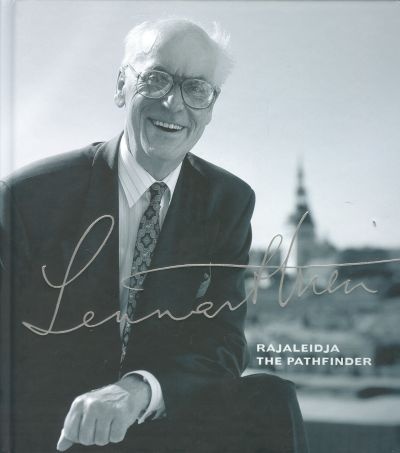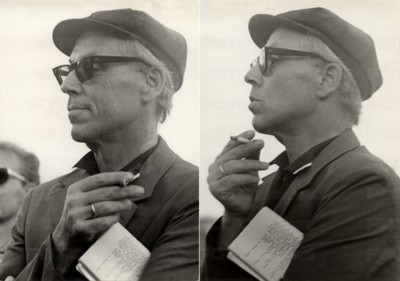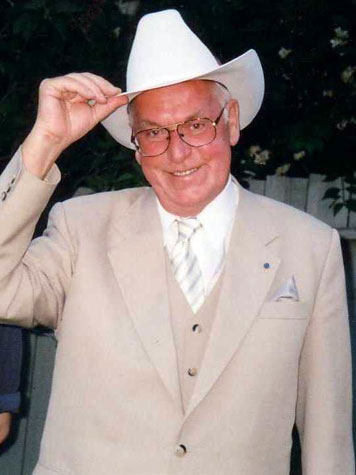
The Pathfinder, by Tiit Pruuli (Tallinn, Estonia 2009)
This book is about Lennart Meri, ambassador, foreign minister and the President of the Republic of Estonia (1992 – 2001) and first of all filmmaker and writer, a great diplomat.
Born in 1929 to the renowned diplomat and Shakespearean translator Georg Meri, Lennart Meri’s early childhood exemplified the plight of the Estonian people. Living in a country ravaged by war and subjected to the brutality of Soviet occupation, Meri attended nine different schools and studied in four different languages. He was eventually deported from his homeland to Siberia along with thousands of other Estonians, Latvians, and Lithuanians. During his forced exile, he helped feed his family by picking potatoes.
President Meri experienced more hardship as a boy than most men do in a lifetime, but he was quick to turn his struggles into opportunities. In the course of his itinerant education he became fluent in French, German, English, and Russian. He also developed a tenacity that would serve him well throughout his life.
Lennart Meri eventually came back to Estonia to study history and languages, graduating from Tartu University with honors in 1958. The Soviet Government prevented Lennart Meri from working as an Estonian historian, but he again found possibility where others might have only seen discouragement. Instead of accepting defeat, he established himself as a writer, filmmaker, and dramatist, and used these avenues to preserve Estonia’s national identity.

For over 20 years, the Soviet Union refused to allow Lennart Meri to venture beyond the Iron Curtain. Ultimately, when he did travel abroad, he served as a lone, unofficial emissary of what was by then an almost forgotten country. He established contact with politicians and journalists, recounting the story of Estonia to whoever would listen. When the collapse of the Soviet empire finally freed his country, Lennart was able to continue representing his newly independent homeland as an Ambassador and Foreign Minister. Ultimately, Lennart Meri served two terms as President of the country he had loved and championed for so long.
The man’s accomplishments were myriad; he helped build Estonia’s Foreign Service from the ground up, established strong ties with the West, and reached an historic agreement with Boris Yeltsin to end Russia’s military presence in Estonia. Beyond these remarkable achievements, though, Meri left behind a bequest of liberty that will endure along with the free nation of Estonia. I hope each of us will appreciate that legacy and continue working to advance the cause of freedom.

He was above all a politician, but he wielded the art of diplomatic handicraft like a professional. Unlike an ordinary diplomat, however, he wrote his messages himself. With his work, Meri created an area where domestic and foreign policy met. Figuratively speaking, he built Estonia, promoted Estonia abroad and, on the basis of the response, he could influence changes within Estonia. These changes allowed Estonia to fit better into the democratic world. Like a sculptor, he carved Estonia into a more suitable form for Europe, but he also carved Europe to be more suitable for Estonia. He did not let Europe sink into convenient stereotypes, but rather warned against simple-mindedness. One of his favorite phrases: they say communism is dead but no one has shown me its corpse.
The biggest mystery about the man is where he got his skills. How could a person who had lived his whole life in the Soviet Union retain such a strong sense of Europe?
The years spent in Paris and Berlin had been in his distant childhood. Once, when already foreign minister, he said that he had been preparing for the position for his whole life. That was no exaggeration. His war with the USSR was one man’s battle for truthful information. He has described how he tried to build his first shortwave radios already when in exile in Siberia. No one remembers seeing Meri without a shortwave in the 1970s and 1980s: every night, without fail, he listened to Radio Free Europe, BBC and Deutsche Welle.
Lennar Meri was a diplomat his whole life long. His sophisticated skill of playing the Soviet authorities for fools allowed him to keep from marching in lockstep with Soviet reality. He tried to build himself and the Estonian people a little corner of what was almost Europe. His books, speeches and interviews could well have been from Western European papers, but for a few substituted words. As a man of film and letters, he constructed an Estonian history of dreams, secured and preserved the national foundation, and kept national idealism from breaking down during the difficult communist times.
Take a look at the heads of state of the Republic of Estonia!
One example of his legacy in Estonia is our country’s airport in Tallinn, it is named after Lennar Meri.
Estonian people remember him as a charismatic leader, great statesman, open minded and witty man who still inspires young people and gives lots of reasons to talk about him an remind him as the pathfinder of Estonians to their freedom.

Dear Krista,
Lennart Meri seems to know a great deal about leadership! He has lived a very fascinating life with lots of trials and tribulations. Meri like many others show how hard work is the key to being a great leader and that most great leaders come from humble beginnings.
Great post!
Sepeedeh
Krista,
You have done a fantastic job explaining in writing the amazing accomplishments of Lennart Meri. I am very glad you chose to share about his life experiences so that we could learn from his example. His dedication and hard work is admirable, and I can only hope to exemplify these same characteristics in my own leadership positions. This is my favorite quote you said: “As a man of film and letters, he constructed an Estonian history of dreams, secured and preserved the national foundation, and kept national idealism from breaking down during the difficult communist times.” Oh, how incredibly you have written that! Thank you for this post and for your wonderful intellect.
-Emily
What a fascinating man. I’m embarrassed to say that I had never heard of him before your presentation, Krista, but that probably does not surprise you. What strikes me about Meri’s life is how many times he had a career change. He must have been very flexible in his life, and must have been willing to learn from others and make mistakes in order to be a better leader. Thank you for your presentation.